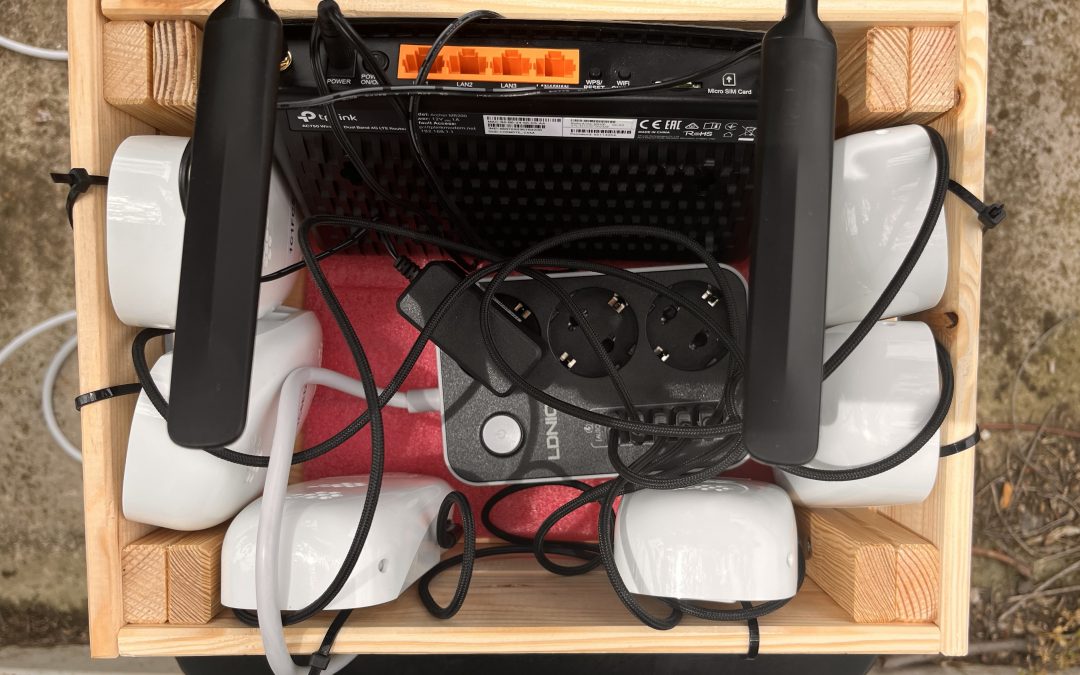Photos from Maroussi team – Dr Maria Kotzagianni and Mr Anargyros Roussos during the colocation activities of the prototype portable SOCIO-BEE sensors placed next to the Air Quality Station of the Greek Ministry of Environment and Energy for validation before they are distributed to citizen volunteers.
In the efforts of advancing and improving SOCIO-BEE Wireless Sensor Networks (WSNs), Municipality of Amaroussion (MRSI) played an important role by actively engaging in field co-location activities. These co-location experiments are of paramount importance in assessing the precision and the node-to-node variability while they hold a pivotal role both for the citizen science initiatives and the society as a whole.
Taking into account the growing concerns of the scientific community about air pollution’s impact on public health and the environment, effective air quality monitoring is undoubtedly essential, especially in urban areas. Reliable and accurate air quality data are critical, from shaping policies and influencing decisions, to driving pro-environmental actions, and safeguarding the overall community’s well-being. Therefore, the quality of citizen science data is of utmost importance to authorities and decision-makers, as it underlines their crucial impact in shaping evidence-based policies and informed decision-making, offering substantial benefits to public health, the environment and the overall quality of life.
Acknowledging the importance of data precision and data quality in future local governance, Maroussi was engaged in these co-location activities. By doing so, it contributed to the improvement of the results acquired by cutting-edge IoT air quality portable monitoring devices, manufactured by the Spanish company BETTAIR.

